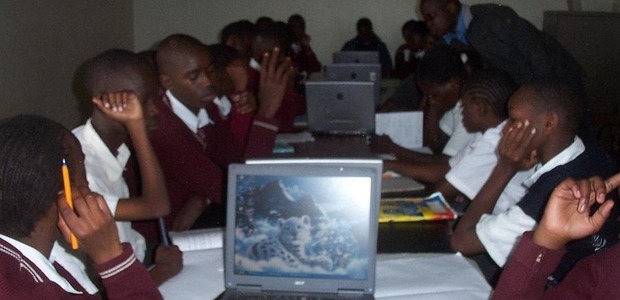advertisement
#SaferInternetDay: CODE-IP’s online safety campaign to extend to 60 schools in 2016
A local non-governmental organization, Content Development and Intellectual Property Trust (CODE-IP), which has partnered with online search firm Google to…

A local non-governmental organization, Content Development and Intellectual Property Trust (CODE-IP), which has partnered with online search firm Google to launch the second phase of its online safety campaign which targets the country’s youth within schools, has announced plans to extend the initiative to more schools this year.
During the previous phase of the campaign, CODE-IP together with its partners trained 1,300 students and 40 teachers drawn from 30 schools within Nairobi with those trained expected to pass on the same knowledge gained to their colleagues.
Speaking during the Safer Internet Day celebrations at Alliance Boys High School, Michael Murungi, Google’s Head of Policy and Government Affairs for East Africa, said that the campaign would be expanded to more schools in 2016.
advertisement
“We’re going to expand the Web Rangers training to over 60 schools from 24 counties. Our target is to reach and impact about 30,000 students by end of 2017 even though our overall target is to train about 45,000 students,” said Murungi.
Web Rangers is aimed at empowering teens to promote the safe use of the Internet among their peers. It is a global program that Google runs in various including New Zealand, Israel, Turkey and Czech Republic.
Giving an update of the status of the Web Rangers training, Alex Gakuru, CODE-IP’s executive director noted that the programme has already trained over 40 teachers and over 1,000 students.
advertisement
Gakuru emphasized the need for those who have already been trained to share and pass on their knowledge to others.
“Knowledge is the only resource I know which multiplies when given away or shared by others,” said Gakuru, adding that the event is not meant to just mark the Safer Internet Day but to also take stock of what the partnership has been able to achieve over the past one year.
While agreeing that there’s need for regulations to ensure safety of people online – including students – Gakuru however called for objectivity to ensure that such laws do not prevent people from realizing the benefits of the internet.
advertisement
“While working on and developing the various regulations, let’s be objective and alive to the many benefits of the internet. Currently, over 75 per cent of the world’s financial transactions are done online via the internet,” he noted.
Echoing Gakuru’s sentiments about internet regulation, Michael Murungi said: “There is definitely a need to empower people to utilize online tools more responsibly. However, the internet is a great platform for innovation and we even need to focus on regulatory innovation in order to cope with some of the emerging challenges.”
Apart from Google, other partners in the Web Rangers initiative are Kenya Institute of Curriculum Development (KICD), Ministry of Education, Science and Technology; Ministry of ICT; Communications Authority of Kenya (CA); the Kenya Film Classification Board (KFCB), Parenting with Ease among others.
The partner schools currently include Precious Blood Secondary School, Riruta; Dagoretti High School; Lenana High School; Moi Girls School, Nairobi; Buru Buru Girls High School; Brookhouse School and Makini High School among others.